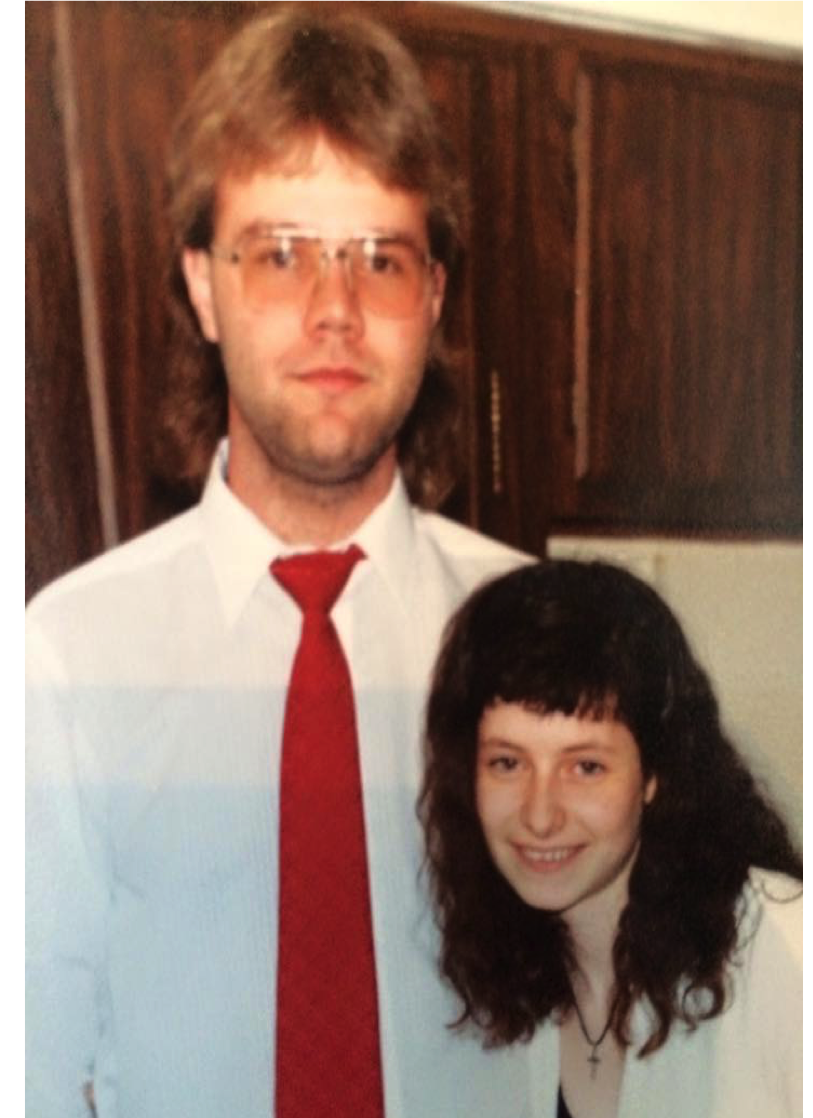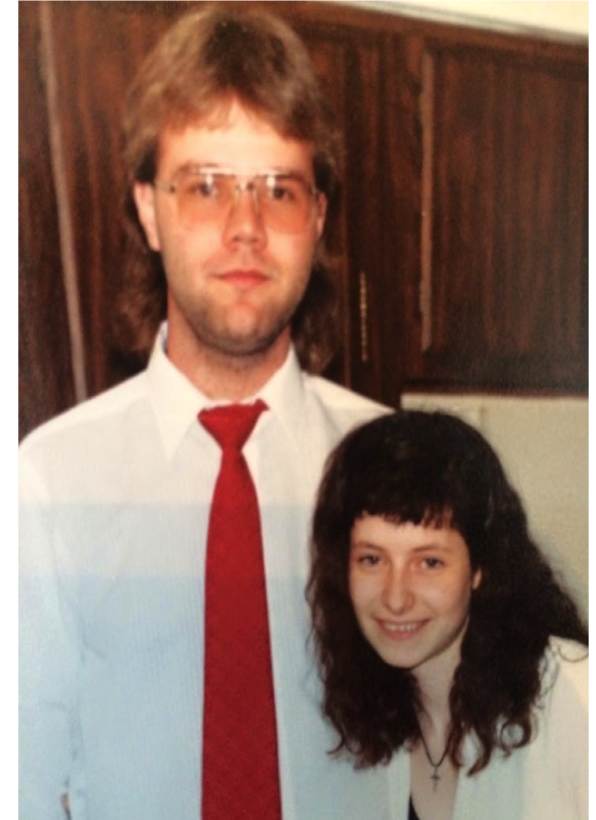I went to college to get my BA and my MRS. Degrees. I don’t know if anyone still talks about this, but back in the 90’s, it was a joke that many women, especially Christian women, were attending college to find a husband. My sophomore year in college, the school newspaper had a front-page article on this topic. I am unashamed to admit that I was totally one of them. My parents told me that I couldn’t get a ring on my finger until I had a degree in my hand. I am very efficient and opted to double major. I love school. Seriously, on bad days, I fantasize about a long vacation and getting another college degree. (It’s a sickness, I know.) College seemed like a perfect way to find a smart, motivated husband. My plan was to find a husband, get married right after graduation, work a little while and then once I had kids, stay at home and raise them.
I had equated a good, Godly woman with being a wife and stay-at-home mother. And I didn’t invent this idea all on my own. I took in both implicit and explicit messages from the Christian community around me. Messages that said child bearing was my highest calling. Messages about how being soft spoken was not only feminine but Christ like. Verses that promoted those ideals were highlighted, and the ones that didn’t were glazed over. The worst thing a Christian woman of my generation could have been called was a feminist. Feminists were career driven, man-hating, pro-abortion, anti-Jesus, women whose sinful hearts had turned them away from God’s call in their lives.

And as someone who truly wanted to be a wife and stay-at-home mother, these messages simply reinforced my “career” path. I wanted what I was told I should want.
I got married during graduate school. We had kids and I homeschooled. GASP. I mean, that was my “calling.” Right? There never was any conflict inside me… until I wanted something different.
Until someone questioned whether I should lead our church’s youth ministry or if it was unbiblical for me as a woman to teach high school boys. Until we decided to send our kids to school and I needed to go to work to pay for tuition. Until I got interested in issues of social justice and came to understand more about both local and global issues of inequality and injustice. It’s hard to not be a feminist when you learn how women in some parts of the world are living. Heck, it’s hard to not become a feminist the very first time someone tells your daughter she can’t do something because she’s a girl. In a very short time, I began wrestling with who I was a woman of God, and if I could reconcile being a working mother, a feminist, and a ministry leader with being Christian.


It might sound crazy to some of you, because today’s culture is very different than is was a quarter of a century ago. (I died a little writing that line.) Yet every culture has its blind spots. And it goes beyond the American Christian culture we live in, to the subcultures that we find ourselves in. Your culture is sending you messages about what it means to be a Christian, what is right and wrong, moral and immoral. You need to weigh those messages out against the whole counsel of scripture and critically analyze what is truly Godly. You need to think critically about everything from views on marriage and sexuality, political parties and their stance on gun control and immigration, to gender roles in the church, the home, and the workplace. You need to evaluate views of modesty, alcohol, and the legalization of marijuana. You need to be able to critically analyze these messages so you can understand Truth with a capital T.
CS Lewis coined the phrase “Chronological snobbery” and argued that every generation has their own biases. If you only read the Christian literature of your generation you are getting a very slanted viewpoint. He argues that you must read a variety of works from different generations in order to help protect you from your own generation’s bias. If you are only reading tweets and blogs and the newest best sellers in the Christian living section of Barnes and Nobel you are missing so much. To protect yourself from this bias, CS Lewis suggests a cross generational reading diet.
“It’s a good rule after reading a new book never to allow yourself another new one till you have read an old one in between. If that is too much for you, you should at least read one old one to three new ones…. Every age has its own outlook. It is especially good at seeing certain truths and especially liable to make certain mistakes. We all therefore need the books that will correct the characteristic mistakes of our own period…. None of us can fully escape this blindness, but we shall certainly increase it, and weaken our guard against it, if we read only modern books….The only palliative is to keep the clean sea breeze of the centuries blowing through our minds and this can only be done by reading old books.” (As found in “CS Lewis on Chronological Snobbery” by Art Lindsley)
I’d add to that quote, something I am sure Lewis would agree with. We have to know our Bibles well. Our Bibles need to be the root from which all of our beliefs stem. We need to weigh what the world says against what God says, and when the two conflict, we need to side with God. That doesn’t mean that we don’t critically analyze scripture, looking at scripture against scripture, scripture in the context of the culture it was written in, and identifying a broad view of scripture as a single great story told across generations.

Christians in different times and in different places in the world have defined the ideals of Christian men and women differently. We need to be careful that we don’t confuse our culture’s ideals of Godly with God’s definition of Godly. The Gospel message must be true everywhere and for all people. If we impose on it standards that cannot apply to a specific group of people, it might not really be the Gospel.
Growing up believing that Godly girls didn’t have careers, invalidated entire groups of Godly women who either had to work (like single women and the impoverished around the world) and those women who chose to work (you know, like say Mother Teresa) And the issue of women with careers is only one area in which cultural ideals can lead people into false interpretations of Godliness.
Fortunately for us, the Bible is filled with examples of godly men and women who are as different as can be. There are kings and queens and peasants and priests. There are children, young men, and old women. There are the single, married, widowed and divorced. There are working mom’s and eccentric prophets. It took me years of internal struggle to see that there is a whole lot of room under the label “Godly.” The real challenge is in finding room for our Christian brothers and sisters in our own hearts.
